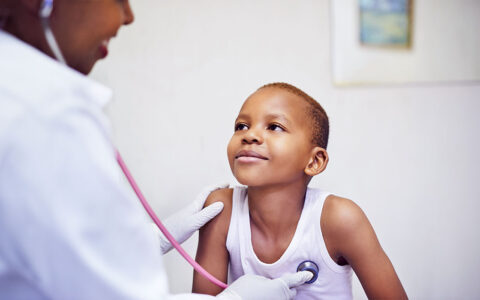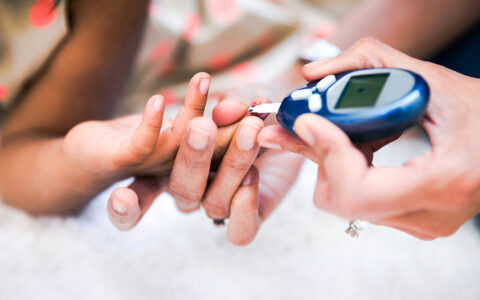A lively debate has transpired since the publication of an article in Diabetes Care showing that people with type 1 and type 2 diabetes who developed COVID-19 experienced equivalent levels of risk for severe illness and hospitalization. The findings have had important policy implications.
“Before our study was published, policymakers hadn’t placed people with type 1 diabetes on the highest rung of priority for immunization, although they had done so for patients with type 2,” said Justin Gregory, M.D., a pediatric endocrinologist at Monroe Carell Jr. Children’s Hospital at Vanderbilt and a lead author on the study.
“Based on our research and that of colleagues at the National Health Service in England, we called on the CDC to heighten prioritization for type 1 diabetes just as it is for type 2 diabetes among other comorbidities that increase COVID-19 risks. And, in the end, the DC did just that,” Gregory said.
According to Tracey D. Brown, chief executive officer for the American Diabetes Association, the CDC’s decision was timely and appropriate.
“The updated recommendation is a welcomed change for the nearly 1.6 million Americans who have type 1 diabetes, many of whom were left behind – even if inadvertently – by CDC’s previous guidance,” Brown wrote in an official statement for the American Diabetes Association.
Pushback Began Promptly
Some diabetes researchers questioned Gregory’s study results, expressing concern that the findings might unnecessarily alarm younger patients with type 1 diabetes and worry their families.
Some doctors argued that because patients with type 1 diabetes tend to be younger, they simply have a lower risk of severe COVID-19 symptoms than patients with type 2 diabetes.
That struck Gregory and his colleagues as an oversimplification.
“We’ve noticed that lots of the type 1 diabetes patients being admitted for COVID are in a state of ketoacidosis, which is a serious, acute complication of their diabetes,” Gregory said.
It’s vital to help these patients avoid COVID in the first place, thereby helping them to avoid the dangers of diabetic ketoacidosis.
Ketoacidosis Reexamined
Others have asserted that findings of patients with diabetic ketoacidosis at the time hospitalization were likely coincidental, according to Gregory.
“We are taking on these questions that other people have raised by analyzing how much COVID-19 metabolically increases the risk for diabetic ketoacidosis over and above factors that are typically associated with that complication,” Gregory said.
Vanderbilt has made it a practice to test every patient being admitted to the hospital for COVID-19 since the beginning of the pandemic. Further analysis of the records are ongoing, with results expected in a few months.






